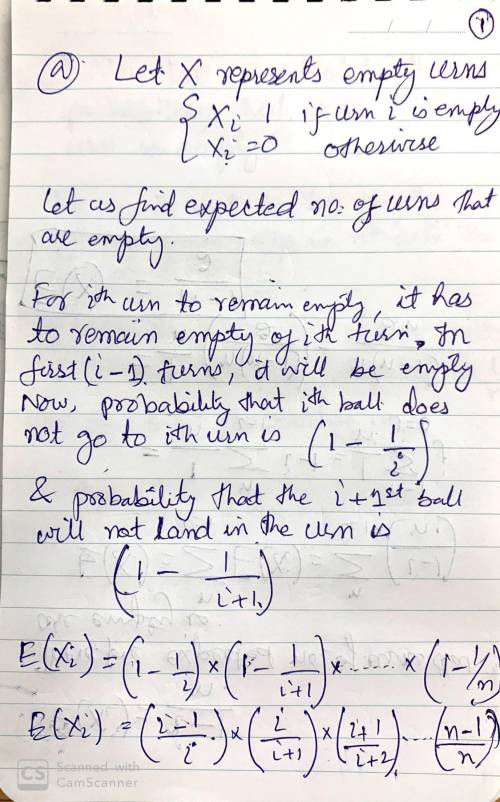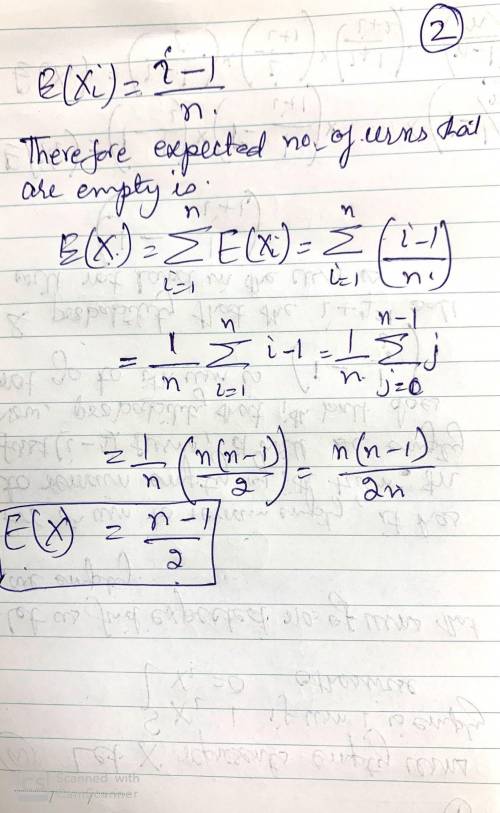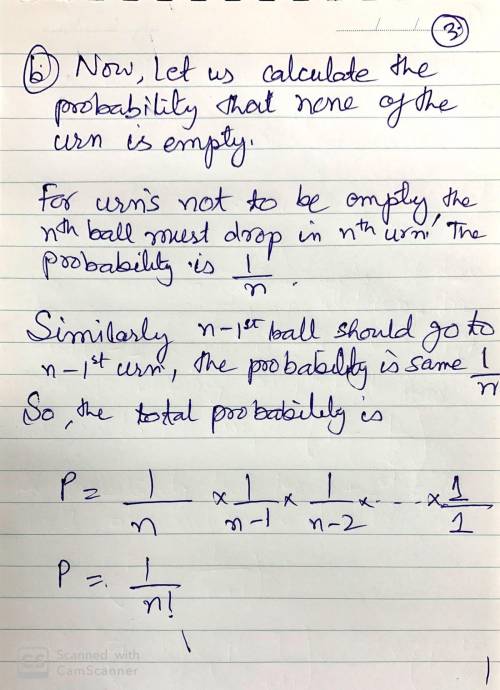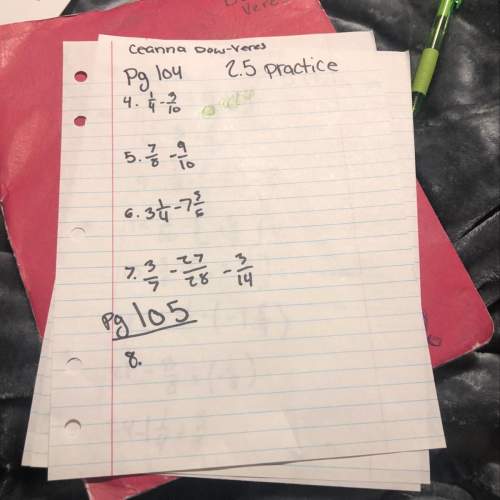
Mathematics, 07.03.2020 04:57 taylorclmna
A total of n balls, numbered 1 through n, are put into n urns, also numbered 1 through n in such a way that ball i is equally likely to go into any of the urns 1, 2, ..., i. Find (a) the expected number of urns that are empty; (b) the probability that none of the urns is empty.

Answers: 3
Another question on Mathematics

Mathematics, 21.06.2019 15:10
Can (2,3 and square root 10) be sides ona right triangle?
Answers: 1

Mathematics, 21.06.2019 15:40
Given the following sampling distribution of one mean with a sample size 49, from a normally distributed population,find the population standard deviation, o.79828588912497
Answers: 3

Mathematics, 21.06.2019 17:40
The graph of y = ax^2 + bx + c is a parabola that opens up and has a vertex at (0, 5). what is the solution set of the related equation 0 = ax%2 + bx + c?
Answers: 2

Mathematics, 21.06.2019 22:30
What is the least common multiple for 6 and 8? what is the least common multiple for 4 and 12 ? what is the least common multiple for 11 and 12? what is the least common multiple for 3 and 6?
Answers: 1
You know the right answer?
A total of n balls, numbered 1 through n, are put into n urns, also numbered 1 through n in such a w...
Questions





Mathematics, 25.02.2020 01:52

Mathematics, 25.02.2020 01:52

Mathematics, 25.02.2020 01:52





Computers and Technology, 25.02.2020 01:52





Chemistry, 25.02.2020 01:52



 (b)
(b) 






